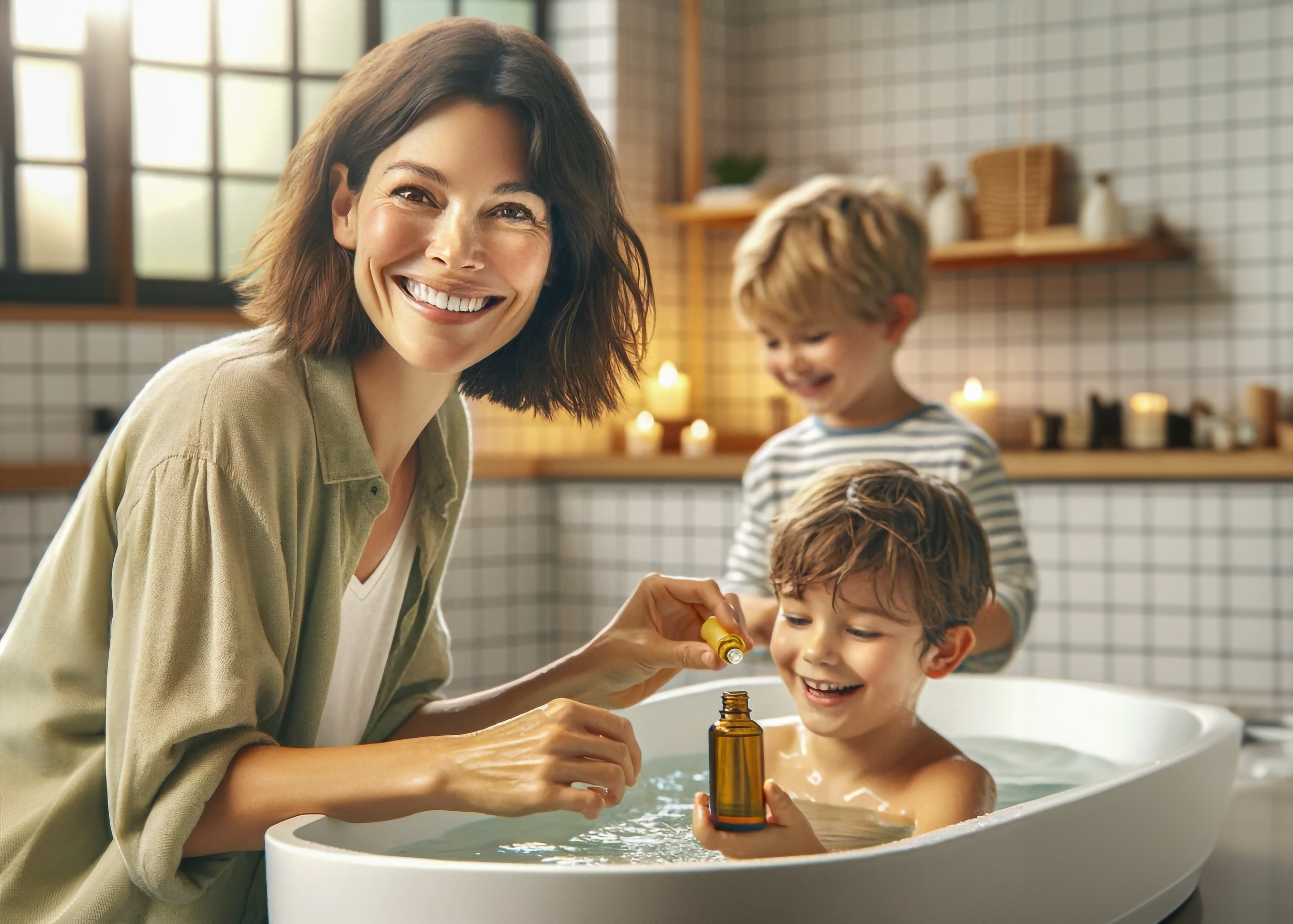Scent-sational: Unlocking the Power of Aromatherapy for Young Minds
Children's mental health practitioners increasingly recognize the benefits of holistic approaches, with aromatherapy being one of the most prominent methods. Aromatherapy involves using natural plant extracts, primarily essential oils and has been shown to improve children's emotional and psychological well-being significantly. This comprehensive exploration will explore how aromatherapy can effectively support children's mental health based on academic research and practical applications.
What is Aromatherapy?
Aromatherapy involves using essential oils extracted from herbs, flowers, and other plant parts to enhance physical and mental well-being. Aromatherapy has shown promising results in children, improving mood, promoting relaxation and aiding in better sleep, all of which are vital for mental health.
Academic studies have provided evidence of aromatherapy's positive effects on children's mental health. For example, a study published in the Journal of Pediatric Nursing demonstrated that lavender oil significantly reduced stress and anxiety in hospitalized children (Journal of Pediatric Nursing (2016). "Lavender Oil's Effectiveness in Reducing Stress and Anxiety in Hospitalized Children.”)
Another research article in the International Journal of Aromatherapy revealed peppermint oil's effectiveness in boosting cognitive performance and concentration in children (International Journal of Aromatherapy (2018). "Peppermint Oil and Its Impact on Cognitive Performance in Children.")
Essential Oils and Their Applications
Lavender: Lavender oil is renowned for reducing stress and promoting relaxation. When used in diffusers, it can help to alleviate anxiety and create a peaceful environment. This makes it an ideal choice for classrooms or bedrooms where calmness and focus are essential.
Chamomile: Chamomile oil is a well-known natural remedy with calming and soothing properties. It has been used for centuries to promote relaxation and improve sleep quality. When diluted, chamomile oil is a safe option for children and can be applied during bedtime routines to help them unwind and fall asleep more easily.
Peppermint: Peppermint oil enhances mental alertness and concentration, making it ideal for study areas to boost children's focus.
Eucalyptus: With its refreshing scent, Eucalyptus oil can benefit children feeling sluggish or under the weather. It can help in clearing nasal passages and boosting overall mood.
Sweet Orange: Sweet orange oil creates a cheerful atmosphere during playtime or creative activities.
Incorporating Aromatherapy in Daily Routines
At School: With parental and student consent, teachers can integrate aromatherapy into classrooms to enhance learning environments. For instance, diffusing eucalyptus oil can refresh the air, particularly during cold seasons, to maintain a healthy classroom atmosphere.
It's essential to use essential oils safely, especially with children. Always dilute oils before topical application and use diffusers for a limited time. Consulting with a pediatrician before starting aromatherapy, particularly for children with specific health conditions, is highly advisable.
At Home: Parents and carers can use aromatherapy as part of a calming nighttime routine. For example, adding a few drops of chamomile or lavender oil to a bath can help children unwind before sleep. Also, incorporating essential oils like lavender or sweet orange during yoga or meditation sessions for children can deepen the relaxation experience, aiding in better emotional regulation.
Essential oils have been shown to positively impact children's emotional well-being, helping them to feel more calm, grounded, and centred. In addition, certain essential oils have also been found to improve focus and cognitive performance, making them an excellent choice for children who struggle with attention issues.
So, by incorporating aromatherapy into a child's routine, parents can help them relax and unwind, improving sleep and reducing stress levels. Whether through a diffuser, a massage, or a few drops in a bath, there are many ways to safely and effectively use essential oils to support children's mental health and overall well-being.


